There are many different pathways to discovering your niche in business. For today’s guest, a random speaking event is what led him to begin providing SEO solutions to attorneys. Now he is THE go-to guy when it comes to law firm SEO.
Jason Hennessey is an entrepreneur, internationally-recognized SEO expert, author, speaker, podcast host, and business coach. He’s the CEO and Founder of Hennessey Digital, an 8-figure digital marketing agency recognized by Inc. as one of the fastest-growing private companies in the U.S. He’s author of the new SEO book for Law Firms. He is also a highly sought-after public speaker, a prolific angel investor, and an active board member of several nonprofits. Since 2001, Jason has been reverse-engineering the Google algorithm as a self-taught student and practitioner of SEO and search marketing.
In today’s episode, Jason shares his origin story of building and growing his first and second agencies. He talks about how his business fits into his larger mission. We also discuss the importance of mentorship, what it’s like to be involved in the nonprofit sector, and how to create a compelling vision that your whole team can rally around. You’ll get some practical SEO tips as well. Get ready for an inspiring episode!
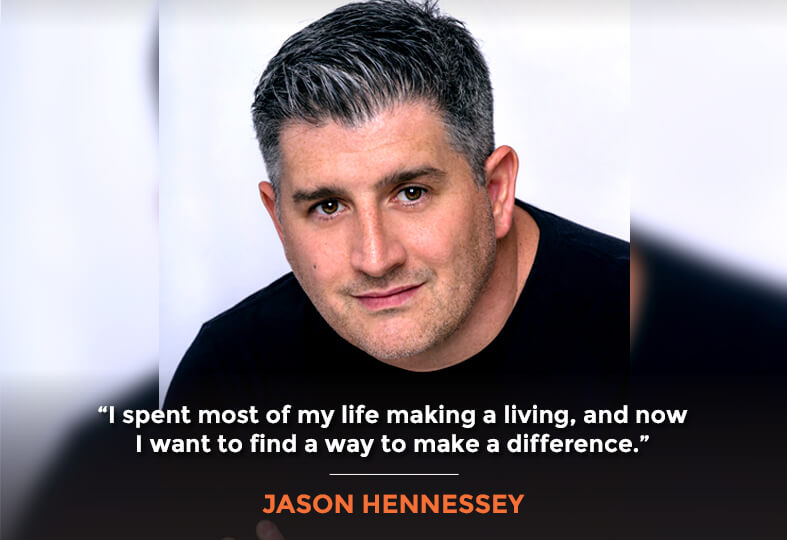
In this Episode
- [00:20] – Stephan introduces his next guest, Jason Hennessey, an author, entrepreneur and internationally recognized SEO thought leader. He’s the CEO and Founder of Hennessey Digital, a multimillion-dollar digital marketing agency recognized by Inc. as one of the fastest-growing private companies in the United States.
- [2:25] – Jason narrates his life’s greatest lesson from his journey towards finding his focus & motivation in creating a difference.
- [6:44] – Jason explains how he found his niche and started a successful business from a random speaking event.
- [9:53] – Stephan asks Jason about the impact of assisting law firms and the rewarding part of helping these firms grow.
- [16:27] – Jason shares about the effects of being an author and the opportunities that have been presented.
- [22:02] – Stephan and Jason discuss the effects of coaching on people & business taking them to the next level.
- [26:21]- The process of visualizing your future & sharing vivid vision.
- [31:37] – Jason tells the pearls of wisdom that he learned from his grandfather that impacted his life, business and family.
- [33:34] – Stephan asks the difference between Jason’s first agency compared to Hennessy Digital.
- [35:26] – Jason states the reason and purpose of his involvement in these three nonprofits.
- [42:40] – Jason emphasizes that his book is for educating, empowering and helping attorneys create better decisions.
- [46:19] – Learn more about Jason Hennessey’s book and his agency by visiting his website hennesseydigital.com.
Transcript
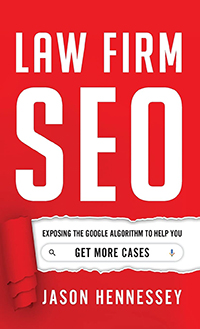
Jason, it’s so great to have you on the show.
Thank you. I sincerely appreciate it. Actually, the honor is all mine, buddy. I want to share just a quick story. I remember when I first got into SEO back in 2001, there were two names that come to mind that were really smart with regards to SEO. One was Aaron Wall. I first bought his book, SEO Book, back in the day and I read it. Then I got to meet Stephan Spencer at a Pubcon event. He got up on stage and I was just like, wow, there’s so much I need to learn in this industry. You’re one of the few people that I learned from when I was an SEO rookie, my friend. So full circle.
Thank you. We’ve become friends. I really appreciate and value our friendship. We got to hang out. This was now a couple of years ago over in Europe at a SEMrush event. I was grateful, we got to walk the streets of Helsinki or Lisbon?
It’s Lisbon.
I think it was Lisbon.
Yup, it was Lisbon. That was a great event, for sure.
What is it that you’ve learned that’s been the greatest lesson from these last couple of decades and not something that you’d get from a book, or from attending a Pubcon, or something like that, but more like a life lesson from this incredible journey that you’ve been on?
That’s a really good question. I guess life balance. In the early days of my career, I was very money-motivated. That’s because I didn’t come from a lot of money. So that was my driver. But as my career develop, as I become older, as I had children, I started to prioritize things. I know it might be like a cliche, but it’s truly kind of living a balanced life.
It’s not just balancing in terms of hitting the gym, spending time with the family, visiting relatives and that sort of stuff, but it’s also inside of the business too. When you focus on your business, it’s not just about maximizing revenue, maximizing profits, grow, grow, grow. It’s about things like giving back or paying it forward. It’s about being active on nonprofit boards, investing in other companies and ideas, and helping them get a leg up. It’s an amazing thing that you’re doing. I really like what you’re up to.
As my career developed, as I became older and had children, I started to prioritize things.
Coming from a heart-centered place, I’m curious. Was there some sort of epiphany or some moment of reflection? You’re like, oh, my goodness, I’m missing out, I need to step up my game or I need to change this money motivation to one of not just balanced but impact.
Yeah. I think the saying that comes back to me is that I spent most of my life—here I am, 43 years old—making a living, and I want to spend the rest of my life making a difference. What does that mean? Making a difference in my family’s life, making a difference in my client’s life, making a difference in my employees’ life. How could I make a difference? You get everything in life when you help other people get what they want in life.
The other thing too, for me, I’m a big believer in energy—positive energy, negative energy—and try to disrupt the patterns of negative energy. I truly believe it’s contagious, both positive and negative energy. I think negative energy is a little bit more contagious than positive energy. When you start to become aware of that, that’s when you can live a more fulfilling life, I think.
I would take it even a step further and say that awakening is contagious. As you awaken and grow your connection to the divine, to the fabric of creation, to your higher power, to everything that is, other people around you are inspired by that. That causes them to light up and to connect, then they in turn help other people to grow, evolve, and awaken. It’s really quite a phenomenon.
The subconscious versus cost-conscious mindset. When you can become aware of that, it’s very powerful.
It’s so powerful, man. The subconscious versus cost-conscious mindset. When you can become aware of that, it’s very powerful.
Being conscious of being conscious. Being aware of your awareness. It’s really fun when you can get there. It’s easy to forget, it’s easy to drop back down to a less awakened state. But it’s just as easy to get back on the wagon as it is to fall off.
Exactly right.
I’m curious, why the focus on the law firm niche? What was it about that made you say, these are my peeps, this is where I’m going to focus?
You know what, it’s interesting. I think life is played out and then we just are the actors in the game of life. It’s like you’ve got this destiny. I didn’t think as a little boy that when I grew up, I was going to be an SEO practitioner. I’m sure you do too.
Or a fireman or astronaut.
Somewhere along the line, a path down this weird journey, and I just took that path. It was the same thing with getting into the legal vertical. From 2001 to about 2008, I was just doing my own things with regards to SEO. I had a couple of my own ecommerce websites, I was doing some affiliate marketing at the time. Then in 2008, I got asked to speak to a group of attorneys about SEO. I didn’t know anything about attorneys or legal marketing.
I spent most of my life making a living, and now I want to find a way to make a difference. Share on XI was thinking, how can I really provide something of value to this group? At the time, I had a wedding website where I was selling wedding favors. It was ranked number two on Google for the word wedding favors. I’m like, maybe I could just create a case study and present it to this group of 50 DUI lawyers in Atlanta, it was this mastermind group, about how I was able to rank number two on Google for wedding favors.
I put together a deck showing exactly what I did. I was very transparent. I even apologized, I said, “Hey, guys, I’m not an attorney, I don’t know anything about legal marketing, but the same principles apply here. The technical aspect, every website, there’s popularity and then there’s relevancy.”
Back then SEO was a little bit different, but the core principles will forever be the same. I got up there, I gave this presentation. Once I got off the stage, I had about six lawyers that reached out to me, came up to the stage and said, “Hey, do you do this for a living? Do you do some consulting?” I’m like, “Not really, but give me your card.”
From there, I walked away with four clients that I was now doing consulting for. That was the genesis of my first agency. From there, you build a case study and you just leverage the case study, and then it’d become a second language to you. I’ve been doing that now since, again in 2008, fully immersed in that space.
You build a case study, and you just leverage the case study, and then it’d become a second language to you.
That’s awesome. You know there are no coincidences. We’ve had this conversation offline, but it’s not like you were at a conference of plumbers and they wanted to fix toilets, and how can we grow our business to fix even more toilets online? It just happened to be law firms that you were invited to speak to at that conference. It was meant to be.
When you’re looking back on what you’ve done and how you’ve assisted people in their companies, how does that make you feel to think, all right, I’ve helped these law firms win more cases, get a bigger impact in the world with their firms and what they’re up to. What’s the impact? How would you frame it that these people are getting bigger awards for their clients, higher amounts because of this? Is it that they’re helping more people? What excites you about it?
It goes a little bit deeper than that. I think that’s one layer of the onion. But I think if you peel the layer back another level, I’m basically connecting those that may have never hired an attorney before, that might have lost a loved one in a car accident at the negligence of maybe like a drunk driver or something, and now they’re left to feed a family without maybe a sole provider.
That’s the reason why there’s insurance. When you are negligent, you need somebody to fight on your behalf so that you can move forward and continue to live without that loved one. I think that’s really the most rewarding part of what we do. Not so much that we help law firms grow, but it’s truly a matter of who they serve. That’s where I personally get more satisfaction from knowing that.

Okay, that’s great. It’s not like these law firms are helping people who committed murder get off scot-free. We’re helping them do that. No, you’re helping the loved ones of people who have been killed in car crashes, and different freak accidents, and sorts.
Absolutely. Then there are others like these pharmaceutical companies that might put profits over people. There’s a big case in Flint, Michigan, where the water was contaminated. This is their drinking water, it was contaminated. People were dying, people were getting sick. They don’t know what to do. Sometimes it takes an attorney to go and fight on their behalf to make change happen, too.
You created an entire book for the law firm prospect or ideal client avatar. You made this book specific to that market. What’s different about this book that you won’t find in other SEO books? I’m not trying to get you to talk about The Art of SEO, my book or anything.
I’m just curious. Are there different aspects that you can delve into that you can’t in a more general book in terms of SEO tips and techniques? Or is there a dumbing down or more generalization that needs to happen because the audience isn’t as technical? I’m just curious, how did you approach this?
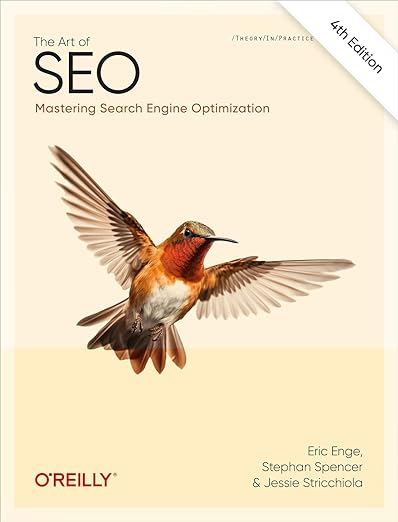
That’s a good question. I think one of my personal skills or gifts (if you will) is being able to break down SEO which can be somewhat nebulous and confusing into a very simple approach where people can leave and say, oh, I get it now, it makes sense. Typically, especially with law firms and other industries too, because SEO could be so confusing, you have somebody that doesn’t know anything about SEO and then you have somebody else that either knows a lot about SEO or is pretending to know a lot about SEO.
A lot of times, if you’re a good salesperson, you can sell somebody a service that you aren’t even really good at. I got so sick and tired of attorneys being taken advantage of by some charlatans and bad practitioners that I wanted to set the record straight and just write a book not so much for them to hire me, because the book is written for even people that are graduating law school that can’t afford to hire me. I just want to stop that and I want to just put an end to lawyers being taken advantage of, if I’m being honest.
By them reading this book, they’re not going to be a Stephan Spencer. They’re not going to know how to go in and look for cannibalization-ish. They’ll be aware of that. In fact, I actually reference, I said, “If you really want to be an SEO Ninja, there are other books that you can read. This is just, have an interest in this. If you want to go more advanced, go read The Art of SEO. I even referenced that in the book.
You’re one of, I think, two books that I recommend in my book. Truly, it was a matter of educating and empowering attorneys to either know how to recruit the right team or agency and also know how to hold them accountable so that they’re not being taken advantage of. That was the thought process of the book. Then we brought in our mutual friend, Mike Rohde, who does an amazing job on illustrations.
He was awesome. I love this guy. Ages and ages ago, he was on Get Yourself Optimized talking about sketchnoting because he’s the guru of sketchnoting. He’s amazing at it. He teaches people in his two books about the topic, how to do it yourself. That’s really cool.
I love the book Rework by Jason Fried. I told my assistant, I’m like, “Whoever did the illustrations for this is awesome.” I was a New York Times bestseller. I said, “Katherine”–who’s my assistant, I said, “Can you go find somebody that can do illustrations like this?” She just quickly went to the back of the book, found Mike’s name, reached out to him, set up a call.
One of my skills is breaking down SEO which can be somewhat nebulous and confusing, into a very simple approach.
I was fortunate enough that he took on my project because he wanted to learn a little bit more about SEO too because he’s pretty selective in the books that he takes on and the projects that he takes on. By writing a book that’s very easy to understand where there are visuals with the whole sketchnoting too, I think we’ve created something that a lot of attorneys will get great value out of.
That’s awesome. I’m curious, what is the effect of having a book for you? I know it’s new, but there must have been opportunities that have presented themselves to you because now you are an author. Whether those might be speaking gigs, keynote gigs, maybe they’re TV appearances, maybe it’s podcast appearances. What doors have been open for you because you are an author?
Taking one step back, the reason why I even wrote the book, our mutual friend, Cameron Herold, who is my business coach, pushed me to write the book. He said that you need to have a book if you really want to be a true thought leader. I took the time during Covid to write the book. It took about maybe 18 months from start to finish. I wanted it to be perfect. It took like a month just coming up with the cover and going back and forth, but it’s very rewarding.
I just got back from two conferences where I did book signings. People have commented already, meaning, their Facebook-messaged me saying, “Hey, I read your book on the plane ride home”—this is an attorney—”and I learned more in the three-hour flight than I have in five years of doing SEO with the agencies that I’ve worked for.” I think that’s really the most satisfying thing for me is that mission accomplished. That was the reason why I wrote the book.
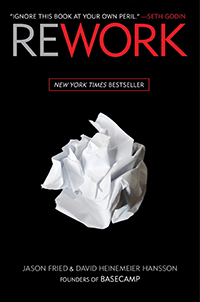
It’s still early. The book came out. It’s still early. A lot of conferences were just reopening. I think it will certainly help to ignite my speaking schedule if I’d choose to go in that direction.
Yeah, which you may not need to. You got plenty of business already. If you like being on the road, then by all means, but it’s not essential. That’s something I’ve found out. It was a silver lining (I guess) from the pandemic. I used to generate more business from speaking than any other marketing activity. I didn’t have to do that for the last two years. I didn’t have to hop on airplanes.
Now I’ve got a two-year-old and he’s not used to me being a road warrior. Do I even have to do that, going forward? Once things open up, and conferences, trade shows, and all that start happening again in full force do I need to go and speak? No, I don’t think so.
No, I don’t think you do. I think occasionally, you might want to make a presence just for human connection, but I agree. The world is a little different now. People are more accepting of these little square boxes that we find ourselves on.
I meet some of the coolest people on Zoom calls, on just breakout rooms, on a mastermind that’s done virtually on Zoom. It’s amazing.
It sure is.
You mentioned Cameron Herold, our mutual friend and your business coach. I thought he only works really with COOs and not with company founder/president, CEOs?
He does cater toward the COO side of the business. He has something called the COO Alliance, but he also does consulting with founders, too. The reason, talk about visualizing your future. About 10 years ago, somehow across one of my social feeds, I came across a TED talk. The TED talk was this guy, Cameron, who was speaking about raising children to be entrepreneurs, and not so many doctors, lawyers, sports figures and stuff.
That resonated with me. Part of the story that he gives in his TED Talk is when he was (I think) in middle school—he came from Canada so he was taking French classes—he really sucked at French classes, but he was really good at public speaking. What the school system did was they said, “Well, you need a tutor in French class.”
Instead of recognizing that he has this strength in public speaking and saying, “Well, why don’t we get him a coach in public speaking?” It just resonated with me. In high school and elementary school, it didn’t come naturally to me. I was kind of (I guess) an entrepreneur. That was like my DNA; that was my destiny. But I felt like a failure in high school because I didn’t get accepted to the Ivy League schools where some of the smart kids were going.
Anyway, that resonated with me, that Ted Talk. I said, “Someday when I can afford to work with this guy as my coach, I’m going to reach out to him.” That someday was in January of 2020. I reached out to him, so it’s almost been about two years since we’ve been working together. He took me on as a client. I just met the minimum of what he requires financially to work with him.
It’s been a game-changer. We’ve doubled our business both in 2021 and then 2022. He’s just been giving me the cliff notes of what I need to do and how to approach different situations. Our whole lives were coached. From Little League to soccer to baseball in high school, why does that have to stop once you become an entrepreneur or CEO?
The world is a little different now. People are more accepting of these little square boxes that we find ourselves on.
Very true. I have multiple coaches that I work with. I’ve gotten sales coaching, business coaching, life coaching, spiritual coaching, you name it.
Do you coach anybody else? Do you coach anybody?
I do. I have a small number of clients, a handful. I don’t want to really significantly grow that business because I can’t really scale it, and it’s trading hours for dollars. I’m having a huge impact on these people’s lives. It’s like that concept of, I learned this from Yanik Silver, interviewing him. He’s the founder of Maverick1000 mastermind.
His mission is to light up 1000 suns, which then light up 1000 suns each. That’s powerful because if I make an impact on somebody that I’m coaching and then they change the lives of many other people, that’s an impact that I started. I’m happy to do that, but I can’t dedicate the majority of my week to coaching. So I only have a handful of clients. How about you? Do you coach as well?
Right now, I guess I coach and mentor some of my team, but it’s not really official coaching. It’s not really structured coaching. Right now I’m in the process of really building the business. So I find myself, like I said, writing books, speaking, and doing business development. I think that’s next. That’s where I will go next.
I got so sick and tired of attorneys being taken advantage of by charlatans and bad practitioners that I wanted to set the record straight. That's how I found my niche. Share on XI go back, my 94-year-old grandfather passed away last week. He was my father figure. I didn’t have a father in my life. He was a very humble man, didn’t make a lot of money, and worked as a custodian at a high school. But the stuff that he instilled in me as a young boy from values to manners to respect, all of that stuff, like you said, just me being me, being that individual, and that character, it passes that along to my children, and then it just has that spark that just continues to ignite. I just tried to live my life with a good character that I’m proud of. But as far as me coaching people, I think that’s the future for sure.
Awesome. We have a mutual friend who I’ve been coaching, Marian Mursa. Did you know that I had been coaching him?
Yeah, I did. I was going to mention that.
He’s awesome. I do feel like I’m making a larger impact through him from the changes that I’ve seen occur as a direct result of the coaching that I’m doing with him. I really like that you guys have formed a partnership and you’re doing some cool things together.
He’s a family man. He’s passionate about SEO. The thing I love about Marian is, a lot of times people overcomplicate what we do in SEO. It doesn’t need to be. Sometimes you need to go back three steps and just look at the simple stuff that you can change. Just go read the Google documents. What does it say?
I just tried to live my life with a good character that I’m proud of.
How can you make the user experience for somebody that’s doing a search that much more valuable? Don’t worry about all the fancy technical stuff. Sure, you can change all of that, but just go back to the basics. We’ve been doing a lot of page revamps lately, where we go in, and rewrite a page, and then we publish it, and then we see how it settles on Google.
A long time ago, I wouldn’t really go back in and change the pages. I would try to force the pages to rank a little bit higher with internal links and inbound links. Nowadays, we just go in and re-revamp the page. If it’s a car accident page and it talks about statistics at the beginning of the page, that’s not really what somebody’s searching for. Bury that at the bottom, that’s cool, but have a little empathy to somebody that was just involved in a car accident first.
Just some of the basic stuff. He’s a fantastic guy, he’s a great human being, and I appreciate the introduction.
No coincidences. It was meant to happen. You mentioned earlier about visualizing your future when you were talking about Cameron Herold. Did you actually create something like a vision board or how did you visualize your future? I know that Cameron teaches doing a vivid vision and writing a whole document up of what your vivid vision is, like a mission statement or vision statement on steroids. I’m curious what your process was if any.

In fact, we just went through that exercise. I was on a call today with my director of communications going over it. For me, I’ve always had a vivid vision, but it was up here in my brain. If your vivid vision is up here in the brain, while you’re going to try to move towards that vision, you’re not going to get a whole lot of buy-in because people can’t see what your vision is. It’s not articulated.
Cameron has helped me to make sure of the direction in which we’re going in business, and I would probably argue that everybody should have a vivid vision for their personal life, too, which I haven’t done, but in business, what I did was I just broke away from the office for two days. I went down to a nice hotel and stayed there. I was just sitting with myself. I was just visualizing, where will my company be in three years? It’s three years, and I walk in, and what’s going on in the world? What’s happening? How many team members do we have? What’s our revenue? What are some of the specific details? What are we doing?
I just sat down and I wrote a bunch of bullets about what my world will look like from a professional perspective in three years. Then I visualize that with my team. I went over that with my team, and then they then created a story out of it. My director of communications created a story, and then my creative director then took visuals and made it more of like a nice PDF.
Then we shared that vivid vision with our leaders, we shared it with our employees, we shared it with our clients, we shared it with our banker, we shared it with whoever will want to see it because this is where we’re going. Now, we might not hit all of them, but if we hit 30% of it, it was a great exercise.
We shared that vivid vision with our leaders, employees, clients, bankers, with whoever will want to see it because this is where we’re going.
There are some examples of vivid visions which I’ll find. I believe it’s just on his website. I’ve got one for him personally, as well as one for his business. Those are both really great. Then Conscious Copy & Co., they have an offering where they will create your vivid vision for you. You can work with them. I know Jennifer from Genius Network.
Yeah, Jennifer Hudye. I highly recommend having something tangible that even if you only do a poster board and you cut some things out of a magazine like pictures, or you use your color printer to print some out and then you stick it somewhere, and never look at it again, just the fact that you have tangibly put it onto a poster makes it real. The law of attraction is a real thing. It actually works.
I got a classic example of that. My young son, when we moved out here, he’s an actor. His name is Zach. His acting coach, a guy by the name of John D’Aquino, assigned a project to all of his students to create this vision board, where they need to go out and take pictures from magazines and put them up on a board. It’s just a visual representation of where these young students will be in life. It was just a one-year vision.
He had all kinds of stuff like he was going to have $10,000 in his bank account when he only had $7 at the time, things like that. One of the things that he did was he actually wanted to work with Morgan Freeman in a movie or some kind of a project. On his vision board, he cut out a picture of Morgan Freeman. That didn’t necessarily come true.
I'm a big believer in positive vs. negative energy. Both of which are contagious and hastily reciprocated. Share on XWe did have dinner in a restaurant one time, and lo and behold, Morgan Freeman was there. My son went up to Morgan Freeman and he told him that, “Hey, you know, I had a vision and I have a vision board”—He showed a picture–” and you were on the vision board about working with you on a movie. While we’re not working on a movie, could we take a photo together?”
Morgan was nice enough and he took the photo with my son Zach. Again, no coincidences. The universe speaks and sometimes we just listen to it. I just thought that was something to share.
That’s fun. That is so cool. You said your grandfather recently passed. I’m curious, what would be something that was a bit of wisdom, some pearl that you learned from your grandfather that you’ve applied in your life, in your business, in your family, something that has made a lasting impact?
I guess my grandfather wasn’t successful in how society defines success. Meaning he wasn’t a famous movie star, he wasn’t a billionaire, he didn’t drive fancy cars. He didn’t have a prestigious degree. But now in hindsight, he was probably one of the most successful people that I’ve ever met in my life because he raised his family, he was humble, he treated people with respect, and he lived a very fulfilling life that those that knew him, got great value in having him in his life.

It’s wonderful. At the end of the day, it’s not what you accomplish, it’s who you are that makes a difference and how you show up in the world. Sounds like that was something he excelled at.
He sure did. Yup.
Awesome. On my other podcast, I recently interviewed Karen Noe. I recommend you listen to that episode if you haven’t already because that’s all about receiving signs and messages from departed loved ones and from angels. If you want to hear from your grandfather, there you go.
I will listen to that. Thank you for that.
Let’s talk for a minute about your first agency. What happened with that one? What was the exit? What was the impetus for that particular company? How’s that different from Hennessey Digital?
The first agency was called Everspark Interactive. We started that in about 2008. I think I sold my interest in early 2015. It was a great agency, we were growing, there were multiple partners. Eventually we—meaning me and my partner—bought out the remaining partners. There was a two-headed dragon. I think my partner wanted to take the agency in one direction and I wanted to take the agency in a different direction. While it was kind of still a mutual friendship, it was just the whole partnership thing.
My mission was to educate and empower attorneys to know how to recruit the right team or agency and learn how to hold them accountable so that they're not being taken advantage of. Share on X
At the time, my wife wanted to move back to the West Coast to be closer to her family because her parents are getting a little bit older. My young son was just getting into the acting business. His manager and his agent we’re on the West Coast. Again, the universe was just kind of speaking to my family. My partner, Chris, and I had an amicable split. He ended up buying my interest in that agency. The agency is still around. Then I went off and I moved my family out west, took about a six-month sabbatical.
The way in which the terms of the agreement were created, I can compete, but I just couldn’t take any of their clients or any of their staff. After about six months, I was playing a lot of tennis every single day. I just got the bug again to get back into the agency world. So I got my first client, then I got another client, and then the rest is history. We’ve been just growing ever since. Now there’s no time for me to play any tennis.
Now you have an eight-figure business.
Eight-figure business with about 130 full-time employees. It’s just been growing very quickly.
Congratulations.
Thank you.
How did you get involved in these nonprofits? You’re a board member of multiple nonprofits. When did that start? What do these nonprofits do?
Often, people overcomplicate what we do in SEO, but it doesn't need to be. Sometimes you need to go back three steps and just look at the simple things you can change. Share on XThere are three nonprofits that I’m a board member of. One is a new nonprofit. They got the inspiration from something in Canada where they take children on rides, children that have different problems in their life. They take them on rides in an exotic car and they raise money. That’s one of the nonprofits that I’m a board member of.
The other two, I’m actually a founder of. One is called Articulate Change. That was inspired when the whole world was turning against each other and the whole George Floyd. We just wanted to make the world a little bit better place where everybody sees each other equally regardless of your race, color, religion, or any of that. That’s called Articulate Change. We’re creating a life through friendships, new friendships with people that don’t necessarily look like you.
Then the third is one called I Hate Cancer. It’s ihatecancer.org, but I also own ihatecancer.com. That was inspired by my grandmother who passed away of cancer in 2001. I bought the domain name and I’m like, someday I’m going to do something with it. That’s a mission that we’re focused on right now. It is a 501(c)(3), it has been. The goal with that is to build a big warehouse, we get sponsors, and we send out comfort boxes to hospitals where there are those that are affected by cancer, just to brighten their day and make them feel extra special. That’s another one.
Again, I spent most of my life making a living and now I want to try to find a way to make a difference. Those are the three ways that I can make a difference.
Very cool. Very cool. You have a particular interest in exotic cars. Not just as a board member of the first nonprofit, but you have a Lamborghini yourself, right?
I do. I don’t like to say that usually.
You do post a lot of photos on Facebook with you and your Lambo.
We’re creating life through friendships, new friendships with people that don’t necessarily look like you.
Here’s the story behind that. When I was about seven years old, my mother had brain surgery. My mother was everything to me. We took a train back and forth to New York City so that she can go and see her doctors. This is at a time when my mom and I didn’t own a car. We’d have to go back and forth to New York City so she could see her doctors.
While she was in there, right across the street was an exotic car dealership. I would walk over there. I’d go get myself a soda and some candy, and I’d walk across the street. I’d go in there, and the guys would know me and like, “Hey, Jason, how are you?” I’m like, “Whoa, can I sit in this one?” “Sure.” Talking about the power of visualization, I made a promise to myself back then that someday when I can, I’m going to buy myself one of these cars because they’re just so cool.
Again, I was probably maybe 11 years old, who knows? My young son JJ—his name is Jason, but we call him JJ—growing up he also had an interest in cars. His room was always Lamborghinis, Ferraris, posters and stuff. When I went back to Georgia on a vacation with my family, I bumped into my friend and he had an exotic yellow Lamborghini. I know that he maintained it and babied it.
I was kidding with him. I said, “Hey, when are you going to sell me that car?” He goes, “It’s funny that you say that because I’m actually getting ready to sell it.” Unfortunately, he was going through a divorce, and he was going to have to get rid of some of the assets and stuff. He goes, well, if you make me an offer, I might sell it to you. I’m like, well, let’s go take a look at it tomorrow because we’re at the pool.
The next day, my son and I got dressed. We went to drive down, and we looked at the car. We sat in it and he said that he wanted X thousands of dollars for it. I said, “Well if you take off $10,000 and maybe we can talk.” He says, “You’ve got a deal.” So I made an impulse decision to buy a yellow Lamborghini while on vacation with my son.
I thought, wow, what a cool experience to be with my son and actually buy something like this. It’s like a moment that we would cherish forever. I still had that promise to myself as a six-year-old boy. But now I’m looking like, how cool of a dad do I look like by doing this here? I was in a position that I could afford at the time. That was it. We bought it and then I told my wife later.
I made a promise to myself back then that someday when I can, I’m going to buy myself one of these cars because they’re just so cool.
Did she flip a gasket or whatever the expression is?
Yeah. I know I have it. It’s an asset. It’s like a piece of art. It doesn’t depreciate.
Like an NFT, right?
Exactly. Except it’s tangy, you can touch it. You can sit in, you can feel it.
It’s awesome. A funny thing, I had always wanted a Porsche. I finally got one this year. I’m like, you know what, it doesn’t feel that amazing now that I own it. I ended up taking it back. My wife didn’t love it. She thought the seats were uncomfortable and it was not that roomy. I’m not loving it. I’m like, yeah, you know, not me, either. I don’t know. I guess I accomplished my goal of getting a Porsche, but I don’t own it anymore.
It wasn’t as fulfilling as you thought it would be.
But I get to check it off my bucket list, like, owned a Porsche.
There you go, nothing wrong with that.
It’s not all that for me. For me, personally, it’s like, I got bigger fish to fry. I want to start my own 501(c)(3).
Exactly.
I actually have started exploring that, seeing what is going to be involved to do that to create a foundation or whatever. It’s not easy. It’s a lot of work involved and a lot of compliance issues. It’s a lot easier just to write out a check to some other organization. It doesn’t feel like enough for me right now.
All right. Let’s round out this episode with a few SEO tips. What would be something that a reader of your book would walk away with thinking, ‘Wow, I am so glad I read Jason’s book, that was so incredible’?
I think those that pick up my book would have a much broader understanding of what happens when you search on Google.
I think those that pick up my book would have a much broader understanding of what happens when you do a search on Google, like what goes on behind the scenes, but more importantly, what are the basic tools that you can use just to make sure that whoever you have done this for you if you’re hiring somebody, is actually doing a good job and that you can actually keep score. That’s the big thing.
A lot of the people that I work with aren’t necessarily going to be doing SEO themselves. In most cases, they hire somebody to do it and they get paid a lot of money to be a lawyer. If you do read my book, again, I think you’ll be educated and empowered to make better decisions and to hold the right people accountable for getting the results that you are expecting to get.
One of the things I tell people who are not that sophisticated at SEO and they’re looking to hire either a person or an agency to assist them is to have a handful of trick questions in their back pocket that they can pull out and weave into the interview process. I’m curious if you have any sort of trick questions or some sort of BS detector like that that you can offer our listeners.
It’s interesting. I’m cheating now because I just listened to the episode where James Schramko interviewed you.
That’s hilarious.
Yes, where you’re talking about like, tell me the significance of meta keywords, stuff like that. There’s a lot of those like just tell me some of the tools that you use. Just by them talking about some of the tools, you can kind of get a sense. I think it would take me all of 15 minutes to know if this person is legit or if they are just doing a good job at faking that they’re legit.
I remember doing a second interview on behalf of a client of mine, of a candidate who is going to be their in-house SEO. His favorite tool when I asked him a question, what was your favorite tool for SEO? He listed Majestic. He called it “Majestic SEO.” Then my spidey sense went off like, okay, has it really been called Majestic SEO for a while now? I’m going to ask a probing question and ask him, what’s the important metric in that tool? I knew it, I knew he was posturing or fibbing.
He said AC Rank, which had been deprecated at that time by a couple of years. He hadn’t been in that tool for quite a long time. A long ago, replaced AC rank with Trust Flow and Citation Flow. So I caught him and went on that I did, but I just quickly wrapped up the interview and that was that. Of course, he didn’t get hired.
The other thing to me too is a lot of times, the perception. I was just on a call with a client. You’re trying to compete in a very competitive space and he’s like, we’re on the top of page two, nobody goes to the top of page two. From an SEO perspective, we know how hard it is to go from page 80 to page two. Now you’re actually in the big leagues. I hate it when people discredit being on the second page of Google because that’s when the fun begins.
You got to start somewhere.
You sure do.
All right. Where do our listeners go to learn more about you, get your book, hire your agency? Then, we’ll wrap up the episode.
Great. My agency is hennesseydigital.com. If you forget that E, you can purchase some great alcohol, I guess. My personal brand is jasonhennessey.com and then you can find me on social media using @jasonhennessey on Instagram, Twitter, or whatever social media platform that you’d like to pursue.
All right, awesome. Thank you, Jason. What a pleasure. I’m very happy that you’ve gotten so much success, so many blessings in your life, and I wish many more for you.
Thank you so much. I appreciate you having me on the show, my friend.
And I appreciate you, listeners. Now get out there and make a difference in the world. We’ll catch you in the next episode. I’m your host, Stephan Spencer, signing off.
Important Links
- Jason Hennessey
- Facebook – Jason Hennessey
- Instagram – Jason Hennessey
- Twitter – Jason Hennessey
- LinkedIn – Jason Hennessey
- YouTube – Jason Hennessey
- Hennessey Digital
- Facebook – Hennessey Digital
- Instagram – Hennessey Digital
- Twitter – Hennessey Digital
- LinkedIn – Hennessey Digital
- Articulate Change
- Law Firm SEO
- The Art of SEO
- Rework
- Karen Noe – GYO previous episode
- Mike Rohde – GYO previous episode
- Aaron Wall
- Cameron Herold
- George Floyd
- James Schramko
Your Checklist of Actions to Take










About Jason Hennessey
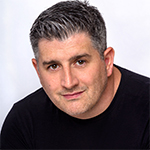 Jason Hennessey is an entrepreneur, internationally-recognized SEO expert, author, speaker, podcast host, and business coach. Since 2001, Jason has been reverse-engineering the Google algorithm as a self-taught student and practitioner of SEO and search marketing.
Jason Hennessey is an entrepreneur, internationally-recognized SEO expert, author, speaker, podcast host, and business coach. Since 2001, Jason has been reverse-engineering the Google algorithm as a self-taught student and practitioner of SEO and search marketing.







Leave a Reply